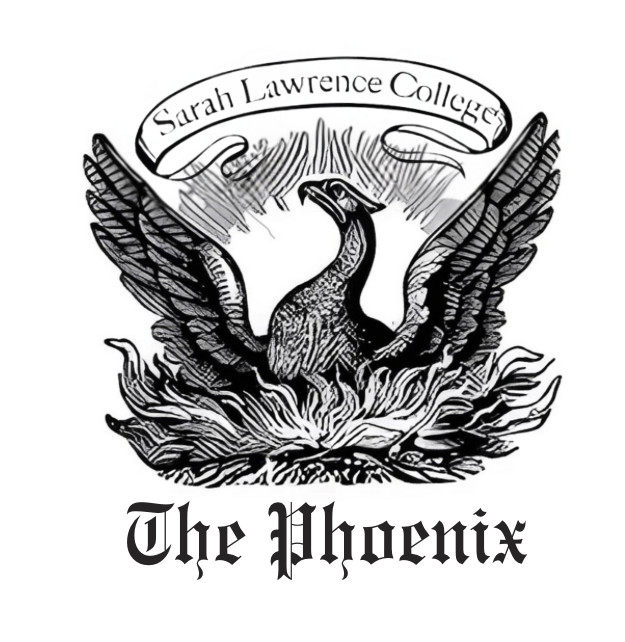Remembering SLC Alumna Lesley Gore '68
Photo by Linda Wheeler for The Washington Post. Via Sarah Lawrence College Archives.
Singer, feminist and SLC alumna, Lesley Gore '68, most notable for her chart-topping sixties hits “It’s My Party” and “You Don't Own Me”, died on Feb. 16, after a long battle with lung cancer. She was sixty-eight years old.
Crying at your own party just because you feel like it is a pretty revolutionary concept for a song, in an era where lovey dovey ballads were filling up the airwaves. “It’s my party and I´ll cry if I want to” became a fixed phrase and a song which shook up the creative standard that American pop culture of the early sixties was so accustomed to. Not only did the jampacked two-minute expression of teen angst speak to millions, but it was also authentic. Because the girl on stage singing the heartbreak anthem was herself only sixteen.
Up until the release of her first record in 1963, Lesley Gore, born Lesley Sue Goldstein, grew up in the remote suburb of Tenafly, New Jersey. Like her fans, she suffered through the penitentiary for bratty teens and brace faces better known as high school until she was discovered by music producer Quincy Jones. Gore became an overnight sensation, or as she used to explain, “had risen to fame in a week”, since “It’s My Party” was released only seven days after being recorded and promptly reached the top of the charts thereafter.
She continued to build on her success with “You Don't Own Me”, a feminist pop song that was a call for women to emancipate. With lyrics such as “ I'm not one of your many toys” or “to live my life the way I want”, Gore was performing a song tailored to the zeitgeist of the time, in which women were beginning to publicly speak out on gender inequality.
Women constitute more than half of the population. In 2008, 60% of voters were women. It is estimated that 10 million more women than men will vote in this election. Despite this, women make up only 16% of Congress. Women earn only 70 cents to each dollar men make.
Even though she had become the most successful female solo artist of the sixties, Gore didn't see her record success as a guarantee for a stable career. She decided to go to college at the height of her fame and later explained her decision based on “the unpredictable nature of the fickle business” she was in.
Although she felt good about attending Sarah Lawrence, she certainly wasn't looked up to for being a celebrity. The vibe that met her on campus was not one of great enthusiasm for her music. As she explained, “It was not necessarily the time to be a rock n roller at Sarah Lawrence. It was all about folk singers”. Her celebrity status did however interfere with her life at school. In 1964 she was awarded the “Janet Auchincloss Modest Celebrity Award”.
Being a celebrity and a college student at the same time was often challenging for the singer. As a freshman in an interview with Life magazine she was “asked about the food at school”, after pondering an answer she called it “a little disappointing”. Later, after the article had appeared, she was called into the Dean’s Office to apologize to the head dietician who was completely “demoralized” by her comment.
Initially she chose the school for its theatre department but found it too experimental and not suitable enough for her pursuits. Instead she tried out filmmaking. One of her first assignments was to get a three minute shot of someone falling down the stairs. “You lose a lot of friends that way, especially when the footage doesn't come out the first time and you have to call them back to reshoot it”.
In the end though she cherished her time at college, graduating in 1968 with a concentration in British and American literature. Later reflecting on her experience she said "the campus was kind of like a haven for me. A beautiful school and an excellent philosophy. They treat women like human beings, and they were doing that back then. It felt really good to […] feel good being a woman, and Sarah Lawrence had a lot to do with helping me feel that way."
After graduating she continued to pursue a career as a musician but was unable to attain the same level of success as during her teenage years. She did however branch out into different occupations, later working as a songwriter. She earned herself an Academy Award nomination for the song “Out Here on My Own” from the movie “Fame,” in 1980.
She often went around touring and singing her old hits and even though she made a good living from being on the nostalgia circuit, she wanted to achieve more. She fulfilled her lifelong dream by starring on Broadway in 1999 with “Smokey Joe’s Cafè” and later in 2005 released her most personal album, “Ever Since”.
At the same time she publicly came out as gay and started taking on a prominent role as an activist for Feminism and Gay rights. Anna Nemetz ('17) who recently covered “You Don't Own Me” at a campus event described Gore’s music as “empowering and meaningful to women, even in todays day and age”.
It is safe to say that many people feel that way about Gore’s music. A PSA video, created by the Department of Peace in 2013 to promote women’s voting and reproductive rights, showed women powerfully singing along to the proto-Feminist hit.
She may be gone and her songs may be considered classics, but the issues she addresses in them seem to be ever more present, which is why Sarah Lawrence’s princess of teen angst won’t be leaving the spotlight anytime soon.
by Jennifer Sperber ‘18
jsperber@gm.slc.edu

